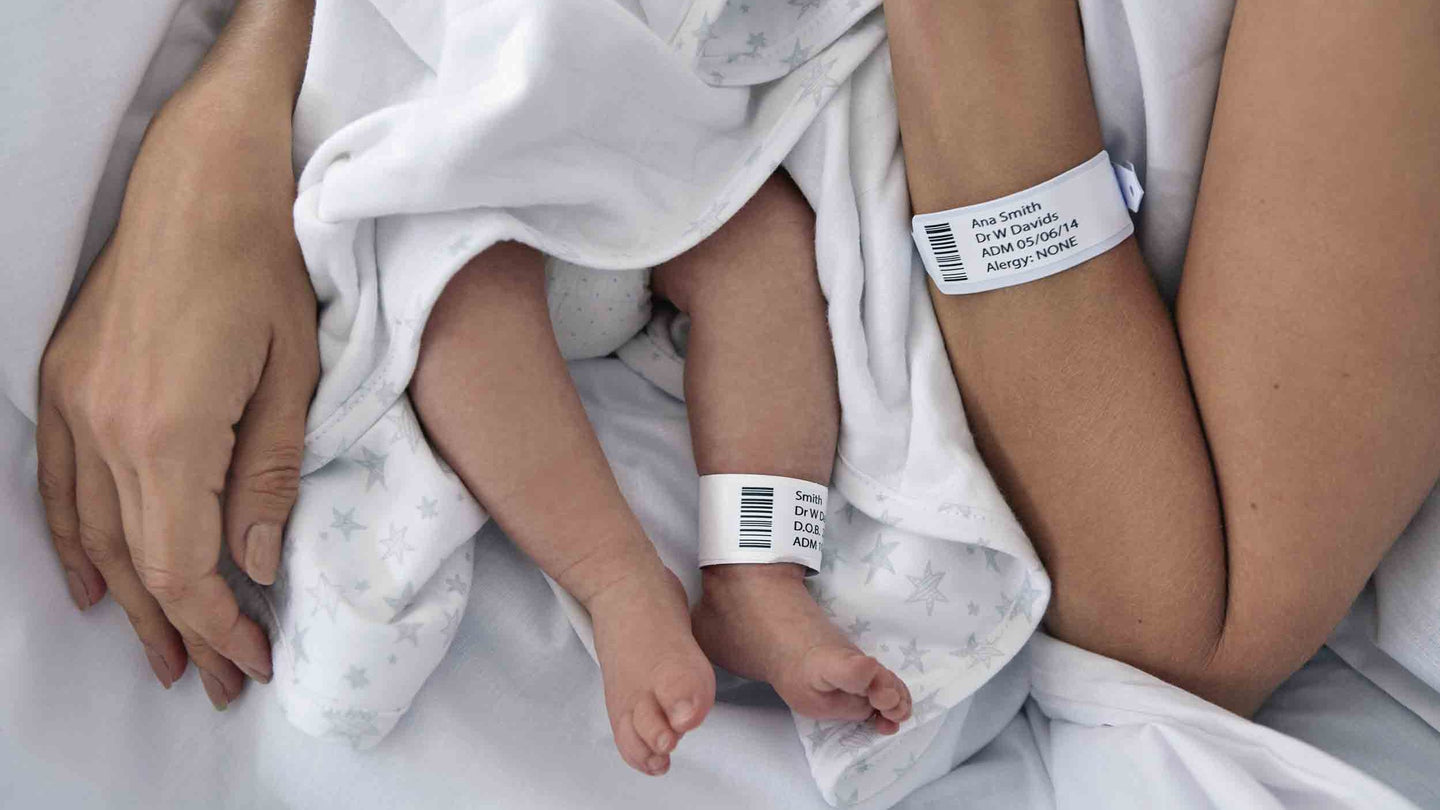What is postnatal depression, what are the symptoms, and what are the treatments? Here’s everything you need to know.
You hold your baby close but rather than feeling joyful, you're empty and despairing. When your little one cries, you feel worthless and unable to cope. You expected new parenthood to be blissful. Instead, it seems like you’re slipping under.
Postnatal depression affects between 10 to 15 per cent of new mums and can cause long-term low mood, irritability, insomnia or exhaustion and general feelings of sadness. These upsetting emotions can overshadow those precious early stages of your baby’s life.
Yet many sufferers struggle to open up to their loved ones or seek professional help, so they end up suffering for longer. It’s really important to be clued up on the symptoms and treatments so that you can spot if something is amiss.
What is postnatal depression?

“Postnatal depression, also known as PND, or postpartum depression, is an illness that usually occurs within the first year after giving birth,” says Donna Collins, Managing Director of PANDAS Foundation, a charity providing pre and postnatal depression advice and support. “It causes depressive symptoms such as low mood, confusion, and withdrawal from others.”
Postnatal depression can develop from prenatal depression, which occurs during pregnancy, or it can appear on its own.
The symptoms are deeper and are more long-term than just the ‘baby blues’, that feeling of low mood or tearfulness which can hit new mums in the days after giving birth. PND often strikes up to six months after giving birth, although symptoms can begin at any time.
What are the causes of postnatal depression?
It’s hard to pin down the causes of PND, although there’s a chance that hormonal changes could be to blame. But external circumstances can also affect a new parent’s mental health. It doesn’t matter whether this is your first child or your fourth – having a new baby is a huge life change and, along with the pressure of new parenthood, any extra stresses or upheavals can cause you to develop postnatal depression. Often, a combination of triggers can be the cause.
What are the symptoms of postnatal depression?
There are quite a few warning signs to look out for in new parents. These include:
- Prolonged low mood or irritability
- Insomnia or exhaustion
- Change in appetite
- An over- or under-attachment towards the baby
- A lack of motivation and less interest in life
- A feeling of worthlessness, guilt or 'nothing'
- A sense of being overwhelmed
- Anxiety or excessive worrying
- A lack of self-care or reduced sex drive
How can you tell if you have postnatal depression or if you have the baby blues?
“Looking at the symptoms of PND, many would say that every parent may feel each of them at some point," says Donna. “The difference between PND and baby blues is that these symptoms persist for a long period of time.
“Baby blues last for two to four days immediately after the baby has been born. For those suffering from PND, it extends to weeks, months or years, depending on when it’s treated.”
Is anyone more at risk of postnatal depression?
Research has found that new mums with a history of mental health issues, including previous postnatal depression or prenatal depression, are more at risk, as are women who’ve suffered birth trauma or other stressful life events. It has been suggested that new mums who don’t have a support network are also more likely to develop PND. Finally, if your mum or sister has suffered from postnatal depression, you’re more at risk of developing it, too.

What should you do if you think you may be suffering from postnatal depression?
Let’s face it, when you’re feeling really low, it can be hard to reach out to a loved one or health professional. Many new parents worry that others will think they’re not coping with their new responsibilities. But it’s crucial that you seek help as soon as you can. By speaking to your GP or health visitor, you can access treatments to help you on the road to recovery.
What are the treatments for postnatal depression?
“Counselling, such as cognitive behavioural therapy, may be offered," explains Donna Collins. “These therapies encourage you to talk through problems and address either the cycle of thoughts and behaviours or how your relationships with others may contribute towards your feelings.
“Sometimes, antidepressants can be prescribed and, for severe postnatal depression, you may be put under the care of a group of specialists, such as a Community Mental Health Team. They can help support you more intensively, or refer you on to other treatments if you are at risk. Mother and Baby Units are places across the UK where you can remain with your baby while you receive specialist care and support.”
Is there anything you can do to help yourself?

“Your GP can provide links to support services in your area that offer guided self-help programmes,” says Donna.
Of course, it’s also important to speak up if you’re struggling. Having support – whether it’s from your partner, family or friends – will reassure you that you’re not alone.
Can partners get postnatal depression too?
Although it’s not widely known, one in 10 new dads are affected by postnatal depression and this is more likely after a stressful or traumatic birth. A study has shown that between 24-50 per cent of new fathers with depressed partners were depressed themselves.
“I didn’t feel an immediate bond with Fletcher or feel love for him when he was born. I went through the motions, keeping him safe and healthy, but I’d be resentful when he cried. Mainly, though, I felt nothing, as though I was watching someone else’s life.
“I convinced myself it was best not to tell anyone. But, by the time Fletcher was nine months, the cracks were beginning to show. Worried, my husband phoned our health visitor who took me through the 'Edinburgh Test', a questionnaire for identifying PND. If you score over 10 you’re diagnosed. I scored 21. After seeing my GP, I decided that medication was best for me, although this is very personal to each sufferer. Within six months, I was having mostly good days with only a few low days.
“Now Fletcher and I have a close bond and my heart feels like it might burst with my love for him. If you think you may have PND, tell someone how you feel. The quicker you seek help, the quicker you can recover and enjoy parenthood.”
Tillie, 30, Somerset
We hope this article has helped you to recognise some of the symptoms of Postnatal Depression and we hope you reach out for help. You are not alone, so speak out. If you know any expectant mothers who are feeling low, they may find our post on Prenatal Depression helpful, or alternatively, check out some more of our Pregnancy and Giving Birth blogs.













